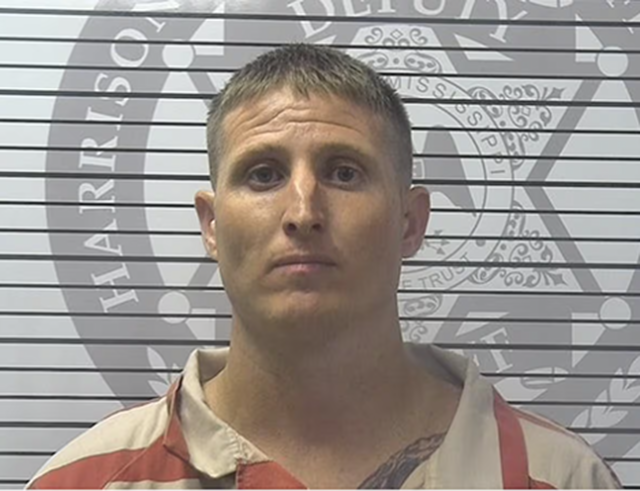Ex-addict creates ministry to help addicted, telling them: ‘There is a way out’
Published 6:18 am Sunday, March 27, 2022
Chris Payne of Tupelo said he knows firsthand what it’s like to feel trapped without an escape plan.
Payne, 36, was just 11 years old when he began using drugs.
“By the time I graduated from high school it was weed, pills, alcohol and some cocaine,” he said. “My drug of choice was ‘more’ — more of anything.”
Trending
Payne founded A Way Out Ministries with his wife Kayla in 2019. Fueled by his own struggles with drugs and alcohol, the Paynes have a passion for telling people locked in addiction that there is a “way out.”
Payne said his own struggle was fueled by his search for love and acceptance.
“I grew up without a father,” he said. “I felt that void inside. I felt unworthy and unloved, and I wanted to do whatever it took to fit in and be liked.”
Before he left high school, Payne said he broke every promise he had ever made to himself.
“In high school, there were three things I said I wouldn’t do: smoke crack, shoot up, and steal from my family,” he said. “I wound up doing all three.”
After graduation, Payne’s addiction spiraled. Years of drifting in and out of rehab left behind a trail of broken relationships and two children. He said even becoming a father was no match for the power of addiction.
Trending
“I remember holding my 1-year-old son in one hand and a crack pipe in the other,” he said. “His mother said, ‘Chris, which one is it gonna be?’ In my state of mind, I chose the pipe and walked out.”
Payne’s long journey to sobriety included six unsuccessful attempts at rehabilitation, multiple arrests and a suicide attempt, all over the course of six years.
Life, he said, was Hell.
“I prayed that God would let me die,” he said. “I thought I was better off dead, because I was never gonna beat this thing.”
But Payne was wrong.
Nine years ago, Payne began turning his life around. He entered the Russellville Dream Center, a faith-based recovery program in Russellville, Alabama. That’s where he learned that faith could fill that void inside himself.
“In all those years, until I was 27 years old, no one had told me the answer was Jesus Christ,” he said. “I was running from all the chaos I had created; little did I know, I was running toward a father who was willing to take me in.”
As the chaos settled, Payne said he started putting the pieces of his life back together.
“I had accountability and the structure I needed,” he said.
He got a cell phone, earned his driver’s license, bought a car and rented an apartment.
“(I) learned how to discipline myself,” he said.
For the first time in his life, Payne was thriving. When the six-month-long program at the Dream Center ended, he stayed on for another five years, working on staff at the center and ministering at the church he attended.
He said it was during that time that he first felt a sense of meaning and calling.
“I found purpose and identity,” he said. “I became the men’s director at the center and I was ordained as a minister at my church. I found out I am somebody, and it filled something in me I had tried so long to find. It was the life I had been searching for.”
In response to a sense of divine urging, Payne moved back to Tupelo in 2018. He met his wife at Anchor Church, and the two of them started building a life and ministry together. They now have full custody of Payne’s 11-year-old son, and the two of them have a 6-month-old baby.
On March 4, Payne celebrated nine years of sobriety, a milestone he never dreamed he’d reach.
“I didn’t think I’d make it nine days,” he said. “I was just a junkie and a con, but God was speaking to me, saying he would use the foolish things and the weak things to show others there is a way out. That gave me hope.”
Payne works a “day job” with Home Healers Construction in Tupelo. But it’s the work he and Kayla do with A Way Out Ministries that gets him out of bed in the morning.
“I have a new joy and a sense of purpose,” he said. “I have such a passion for telling people there’s a way out, because deep down people want something different; they just don’t know anything else.”






